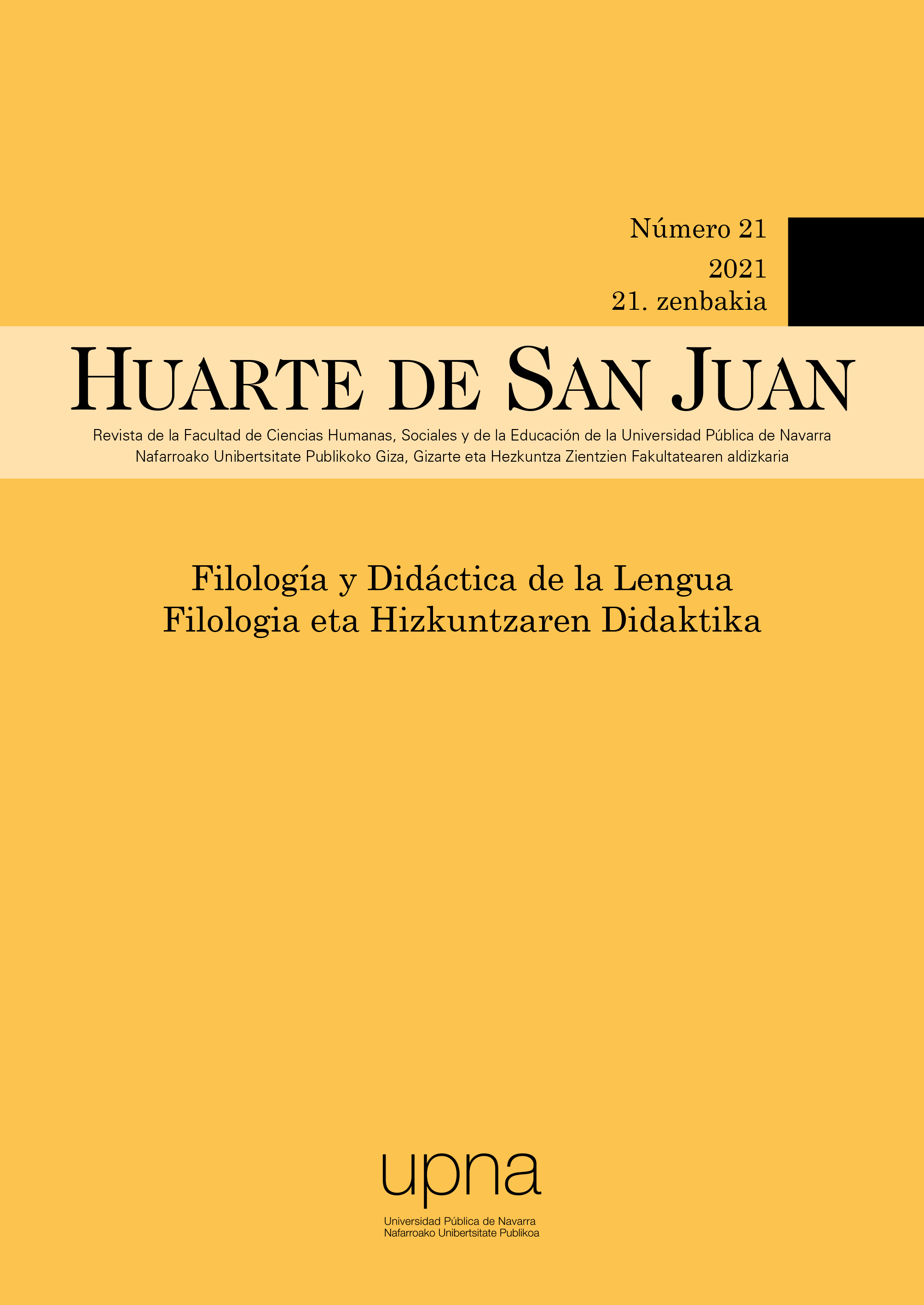La enseñanza del inglés a través del haiku
Una aproximación multicultural y retroprogresiva a la enseñanza de segundas lenguas a través de la poesía mínima
DOI:
https://doi.org/10.48035/rhsj-fd.21.7Keywords:
Haiku; enseñanza de idiomas; cultura; hermenéutica; retroprogresiónAbstract
In the present paper we would like to show how the Japanese poetic modality known as Haiku can be very useful to work with linguistic, cultural and literary aspects in the teaching of second languages other than Japanese. Through this lyrical sample the teacher can develop various dynamics of attentive reading and creative writing, all of which can be developed in a second language due to the apparent ease that supports the reading and writing of a haiku. Starting from how analogic hermeneutics and the concept of retroprogression can provide us with an epistemo-methodological basis, we would like to see to what extent haikus are based on some of the main ideas related to them. Finally, some work possibilities in the language-literature-culture classroom will be made explicit, emphasizing the ability to understand the other when we teach a second language with literary materials for a third cultural domain.
Downloads
References
Arribas, B. (2019). Venir a menos. Crítica de la razón nihilista. Madrid: Catarata.
Barthes, R. (2014). El imperio de los signos. Barcelona: Seix Barral.
Beuchot, M. (2009). Tratado de Hermenéutica Analógica. Hacia un nuevo modelo de interpretación. México, D.F.: Ítaca.
Beuchot, M. (2011). Metáforas de nuestra vida. Antropología e interpretación. Huelva: Hergué.
Beuchot, M. (2014). La huella analógica del caminar humano. Madrid: ACCI.
Bowers, F. (1996). The Classic Tradition of Haiku. New York: Dover Editions.
Esquirol, J. M. (2006). El respeto o la mirada atenta. Barcelona: Gedisa.
Francisco Carrera, F. J. (2016). Hermenéutica Analógica, Poética del Haiku y Didáctica de la Creatividad. Tesis doctoral. Universidad de Salamanca.
Francisco Carrera, F. J. (2018). Didáctica de la lengua inglesa a través de la poesía japonesa. Una mirada hacia un patrimonio de carácter transcultural. En R. de la Fuente Ballesteros y Munilla, C. (Eds.). Visiones transdisciplinares en torno a Patrimonio, Creatividad y Poesía. Valladolid: Verdelís Didáctica.
De la Fuente Ballesteros, R. (2005). Haijin. Antología del Haiku. Madrid: Hiperión.
Grün, A. (2016). El arte de la justa medida. Madrid: Trotta.
Haya, V. (2007). Haiku-dô. El haiku como camino espiritual. Barcelona: Kariós.
Haya, V. (2013). Aware. Iniciación al haiku japonés. Barcelona: Kairós.
Han, B-C. (2015). Filosofía del Budismo Zen. Barcelona: Herder.
Han, B-C. (2018). Hiperculturalidad. Barcelona: Herder.
Kacian, J., Rowland, P. y Burns, A. (Eds.). (2013). Haiku in English. The First Hundred Years. New York: Norton.
van Manen, M. (2010). El tacto en la enseñanza. El significado de la sensibilidad pedagógica. Barcelona: Paidós.
Meyer, M. (1991). Developing transcultural competence: case studies of advanced foreign languages and cultures. En Buttjes, D. y Byram, M. (Eds.). Mediating Languages and Cultures. Clevedon: Multilingual Matters.
Pániker, S. (1982). Aproximación al origen. Barcelona: Kairós.
Pániker, S. (2003). Filosofía y mística. Una lectura de los griegos. Barcelona: Kairós.
Pániker, S. (2010). El modelo retroprogresivo. En Almendro M. (Ed.) La Conciencia Transpersonal. Barcelona: Kairós.
Pániker, S. (2016). Asimetrías. Hibridismo y retroprogresión. Barcelona: Kairós.
Quintero, D. (2016). Zen, un camino de transformación. Barcelona: Kairós.
Reichhold, J. (2013). Writing and Enjoying Haiku. A Hands-on Guide. New York: Kodansha USA.
Riechmann, J. (2005). Un mundo vulnerable. Ensayos sobre ecología, ética y tecnociencia. Madrid: Catarata.
Rodríguez-Izquierdo, F. (2010). El haiku japonés. Historia y traducción. Madrid: Hiperión.
Rodríguez Cabrera, J. M. (2020). El haiku y su valor instrumental en el aula. Lenguaje y textos, 52, 1-8.
Romero, J. J. (2013). Tao. Las enseñanzas del sabio oculto. Gijón: Clásicos Satori.
Stryk, L y T. Ikemoto. (1981). The Penguin Book of Zen Poetry. London: Penguin.
Tagore, R. (2015). Pájaros y luciérnagas. Pensamientos y aforismos. Barcelona: Ariel.
Watts, A. (2006). El camino del Zen. Barcelona: RBA.

Downloads
Published
How to Cite
Issue
Section
License
Copyright (c) 2022 Francisco José Francisco Carrera

This work is licensed under a Creative Commons Attribution-NonCommercial-NoDerivatives 4.0 International License.
All articles are published under a Creative Commons (BY-NC-ND 4.0) license. Each article will be assigned a DOI.
Authors retain copyright of their work and grant the journal the right to the first publication. Authors can sign additional agreements to non-exclusive distribution of the published version of the article (for example, in an institutional repository) as long as appropriate attribution to the original publication is provided. Articles can be uploaded to institutional repositories immediately after publication.
Electronic distribution of the articles (for example, academic social networks or personal webpages) is allowed and encouraged.
The journal reserves the right to publicise the work in social networks and other electronic means.






